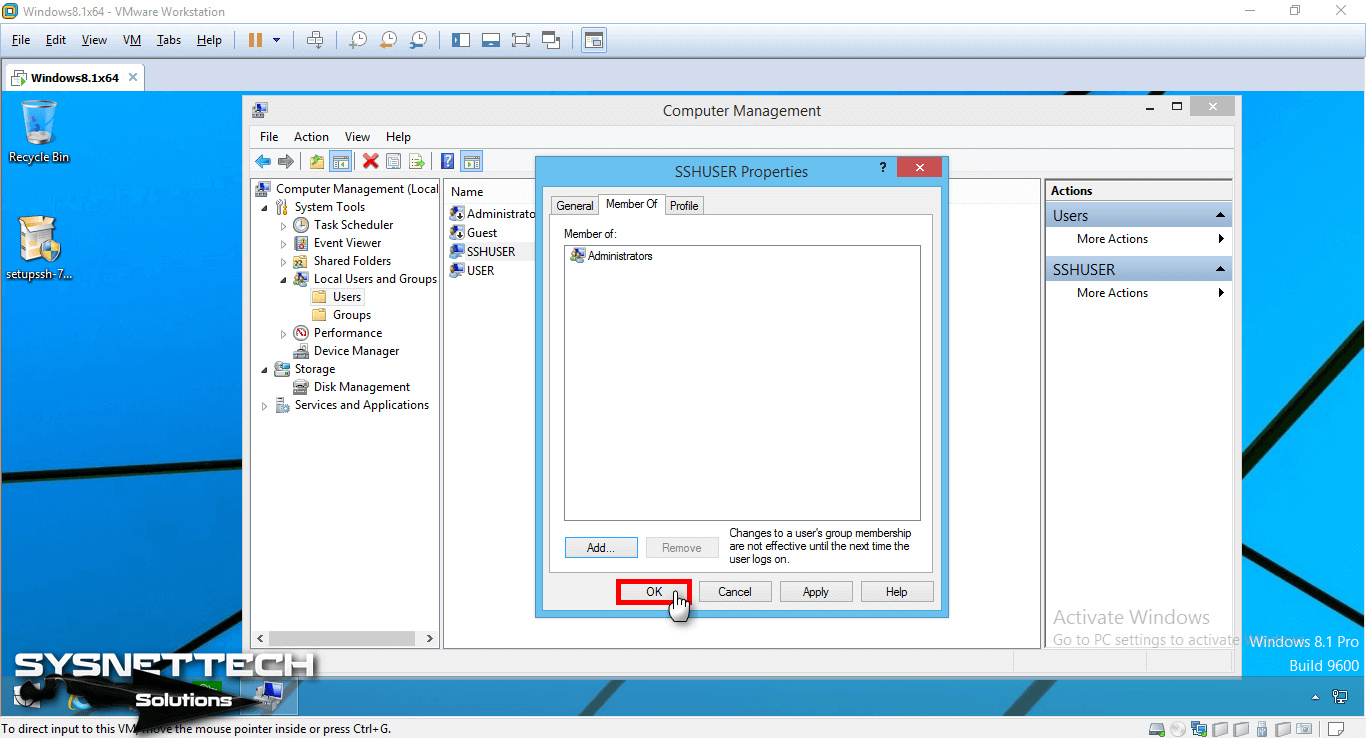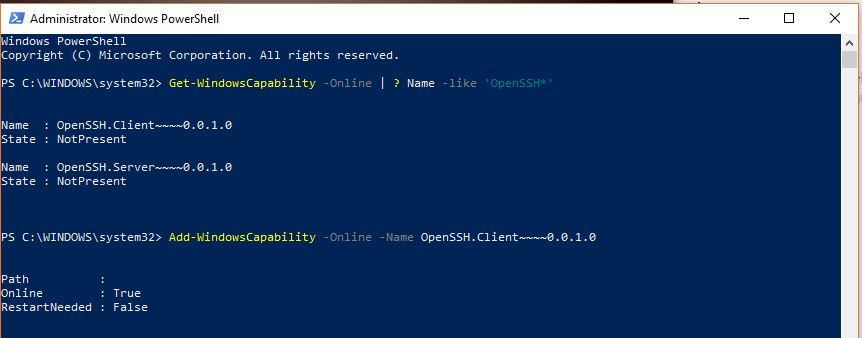
To do that, we simply start the ssh-agent service (as Administrator) and use ssh-add to store our private key. If someone acquires your private key, they can log in to any SSH server as an identity that authorizes the corresponding public key to log in.įor that reason, we should take advantage of ssh-agent to securely store the private keys within a Windows security context. You should protect them under any and all circumstances. Your private key files are the equivalent of a password. pub files are public keys and the rest are private keys): Mode LastWriteTime Length Name Now you have a public/private ED25519 key pair SHA256:OIzc1yE7joL2Bzy8/gS0j8eGK7bYaH1FmF3sDuMeSj8 key's randomart image is: Your public key has been saved in C:\Users\user1\.ssh\id_ed25519.pub. Your identification has been saved in C:\Users\user1\.ssh\id_ed25519. Enter passphrase (empty for no passphrase): At this point, you’ll be prompted to use a passphrase to encrypt your private key files. You can hit Enter to accept the default or specify a path where you’d like your keys to be generated. This should output something like: Generating public/private ed25519 key pair.Įnter file in which to save the key (C:\Users\user1\.ssh\id_ed25519): To make sure that the OpenSSH features are available for install:
#OPENSSH CLIENT WINDOWS 10 INSTALL#
To install OpenSSH using PowerShell, first launch PowerShell as an Administrator. Then select OpenSSH Client (Beta) or OpenSSH Server (Beta) and Install: To install it using the Settings UI, go to Apps -> Apps and Features -> Manage optional features -> Add a feature: Great! So how do I install the bits? Installing with the Settings UI Note: The OpenSSH client and server are still very much in Beta, so we do not recommend using them in production environments. It’s an extremely powerful tool that originated as part of the OpenBSD project, and has been used for many years across the BSD, Linux, macOS, and Unix ecosystems.

OpenSSH is a collection of client/server utilities that enable secure remote login, remote file transfer, and public/private key pair management. You can track our progress on GitHub where you can find our wiki and the latest builds that include tons of fixes and support for operating systems downlevel to Windows 7 and Server 2008 R2. Until then, you should expect OpenSSH support in Windows to continue to improve in future updates of Windows, including upcoming Windows Insider builds.

#OPENSSH CLIENT WINDOWS 10 UPDATE#
Since our last update blog, we’ve been working hard on a Win32 port of OpenSSH and working closely with members of the OpenSSH Portable and OpenBSD projects with the eventual goal of bringing Win32 support upstream into OpenSSH Portable. I’m thrilled to share that a Beta OpenSSH client and server daemon are available as a Feature-on-Demand in Windows 10 Fall Creators Update and Windows Server 1709.


 0 kommentar(er)
0 kommentar(er)
